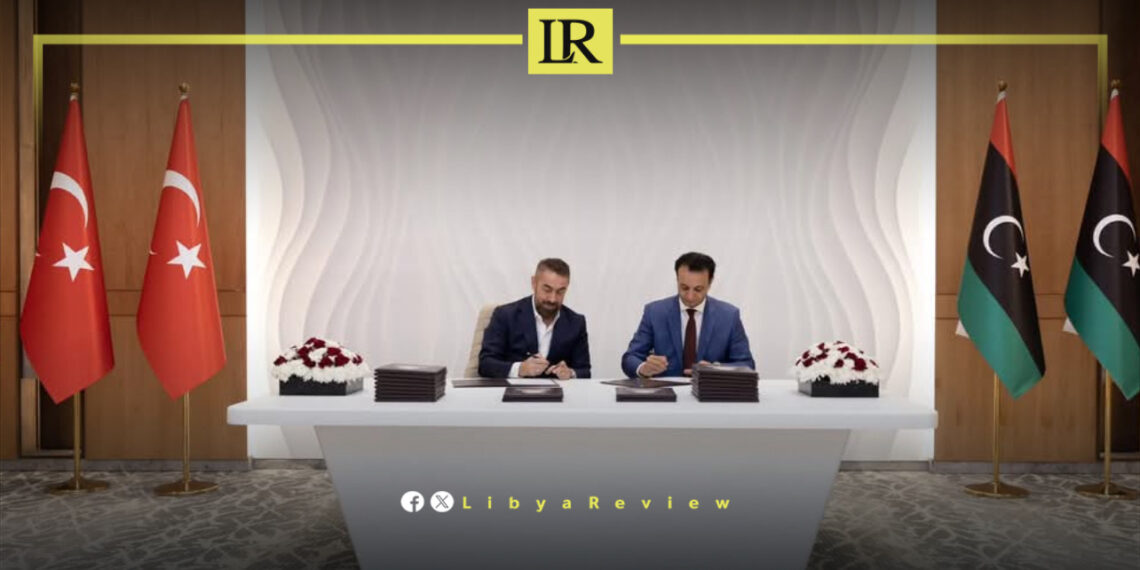On Monday, the Director-General of Libya’s Reconstruction and Development Fund, Belgassim Haftar, signed a set of development contracts for infrastructure and health projects in four eastern cities: Benghazi, Al-Bayda, Shahat, and Tobruk.
The contracts were signed with two national firms—LEPCO for Construction and Industry and Jawaher for Contracting and Trade, but the Fund did not disclose the total value of the agreements.
According to a statement from the Fund, the projects include road construction and maintenance, infrastructure upgrades, and the building and rehabilitation of specialized public hospitals aimed at improving healthcare services and readiness in the region.
The announcement comes just a week after a public outcry over dual government spending in Libya.
A recent report from the Central Bank revealed that total public spending in 2024 had reached 224 billion Libyan dinars.
This includes 123 billion in expenditures by the Government of National Unity (GNU), 42 billion related to oil swap arrangements, and 59 billion spent by the eastern-based government appointed by the House of Representatives.
The GNU quickly responded, accusing the eastern government of spending five times more than the national budget allocated for development, which it said was only 12 billion dinars.
On the other side, Prime Minister Osama Hammad of the eastern-based government defended the spending, blaming the Central Bank’s continued support for the Tripoli government as the reason for the ongoing financial division.
Despite the growing controversy, the Reconstruction Fund has moved ahead with its project signings, framing them as part of its national mission to rebuild infrastructure and deliver public services.


